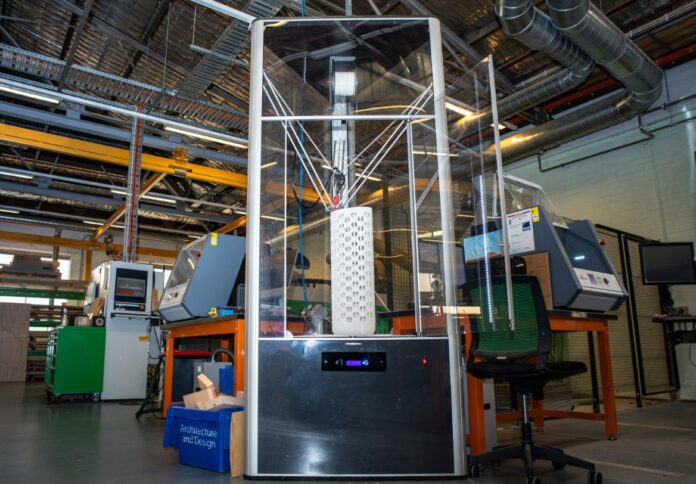
Designers at RMIT University have 3D-knitted bespoke hospital scrubs and 3D-printed chill-out pods for healthcare workers in an effort to improve their comfort and mental health in the workplace.
Dr Olivier Cotsaftis, the project’s director and a senior lecturer at RMIT, created the scrubs using 3D-knitting technology after mapping out the body’s measurements with body scanning technology.
In particular, Cotsaftis said he created a collection of portable, modular, cost-effective, and sustainable 3D-printed furniture.
When the hospital needs it, the furniture may be manufactured on demand and industrially composted at the end of its life.
He spent three years working with Peninsula Health’s doctors, nurses, and non-clinicians to understand the psychosocial hazards in their workplace and find design-led solutions to prevent mental damage.
According to Dr Cotsaftis, many healthcare workers unknowingly experience stress because of their medical scrubs.
“Many workers don’t realise how being uncomfortable in scrubs can add extra stress to an already stressful job,” said Cotsaftis, from RMIT’s School of Design.
He added, “Some workers we spoke to said their scrubs felt suffocating during highly stressful situations.”
Cotsaftis also said that having comfortable scrubs that are suited to an individual’s physique is an excellent strategy to boost workers’ mental health.
“In a job where there is little control over what you do, feeling comfortable in your uniform and how you present yourself can help a person reclaim a sense of their identity,” he said.
Nurse Erin Colgan, who participated in the Safety Sensescaping project and tested Cotsaftis’ prototypes, said she was unaware of how severely her generic navy scrubs affected her mental health until she was involved in the research.
“This project has made me understand the impact scrubs and uniforms have on mental health and I have decided to change how my scrubs make me feel,” she said.
Dr Cotsaftis said he hopes to collaborate with IT businesses to improve 3D knitting and streamline the process. He also hopes to find new fibres created from biological waste to make the scrubs more environmentally friendly.
The prototypes are built of corn polylactic acid (PLA), a natural plastic that is compostable and carbon-neutral, and recycled paper for its sound-absorbing characteristics.
The Safety Sensescaping project, funded by WorkSafe’s WorkWell Mental Health Improvement Fund, is part of Peninsula Health’s Thriving in Health program, which aims to create safe and mentally healthy workplaces for healthcare workers to thrive.













